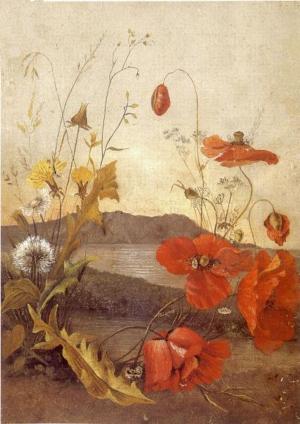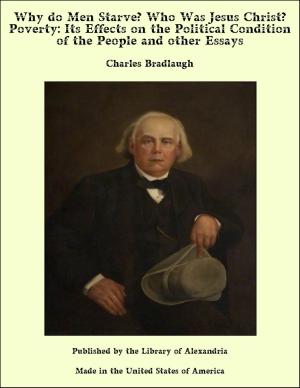| Author: | Francis Marion Crawford | ISBN: | 9781465534545 |
| Publisher: | Library of Alexandria | Publication: | March 8, 2015 |
| Imprint: | Language: | English |
| Author: | Francis Marion Crawford |
| ISBN: | 9781465534545 |
| Publisher: | Library of Alexandria |
| Publication: | March 8, 2015 |
| Imprint: | |
| Language: | English |
My dear lady—my dear friend—you have asked me to tell you a story, and I am going to try, because there is not anything I would not try if you asked it of me. I do not yet know what it will be about, but it is impossible that I should disappoint you; and if the proverb says, "Needs must when the devil drives," I can mend the proverb into a show of grace, and say, The most barren earth must needs bear flowers when an angel sows the seed. When you asked for the story I could only find a dry tale of my own doings, which I detailed to you somewhat at length, as we cantered down into the Valley of the Sweet Waters. The south wind was warm this afternoon, though it brought rain with it and wetted us a little as we rode; it was soft and dreamy, and made everything look sleepy, and misty, and a little uncertain in outline. Baghdad sniffed it in his deep red nostrils, for it was the wind of his home; but Haroun al Raschid shook the raindrops restlessly from his gray mane, as though he hated to be damp, and was thinking longingly of the hot sand and the desert sun. But he had no right to complain, for water must needs come in the oases,—and truly I know of no fairer and sweeter resting-place in life's journey than the Valley of the Sweet Waters above the Golden Horn. That same south wind—when I think, it is a point or two easterly, and it seems to smell of Persia—well, that same soft wind is blowing at my windows now in the dark night, and is murmuring, sometimes almost complaining, then dying away in a fitful, tearful sigh, sorry even to weeping for its restless fate, sorry perhaps for me and sighing for me. God knows, there is enough to sigh for in this working-day world, is there not? I have heard you sigh, too, very sadly, as though something hurt you, although you are so bright and young and fair. The wind sighs hopelessly, in great sobs of weariness and despair, for he is filled with the ghosts of the past; but your breath has a music in it that is more like the song of the sunrise that used to break out from the heart of the beautiful marble at dawn. Poor wind! He is trying to speak to me through the pines,—perhaps he is bringing a message. It is long since any one brought me a message I cared to hear. I will open the door to the terrace and let him in, and see what he has to say. Truly, he speaks great words:— "I am the belt and the girdle of this world. I carry in my arms the souls of the dead and the sins of them; the souls of them that have not yet lived, with their deeds, are in my bosom. I am sorrowful with the sorrow of ages, and strong with the strength of ages yet unlived. What is thy sorrow to my sorrow, or thy strength to my strength? Listen
My dear lady—my dear friend—you have asked me to tell you a story, and I am going to try, because there is not anything I would not try if you asked it of me. I do not yet know what it will be about, but it is impossible that I should disappoint you; and if the proverb says, "Needs must when the devil drives," I can mend the proverb into a show of grace, and say, The most barren earth must needs bear flowers when an angel sows the seed. When you asked for the story I could only find a dry tale of my own doings, which I detailed to you somewhat at length, as we cantered down into the Valley of the Sweet Waters. The south wind was warm this afternoon, though it brought rain with it and wetted us a little as we rode; it was soft and dreamy, and made everything look sleepy, and misty, and a little uncertain in outline. Baghdad sniffed it in his deep red nostrils, for it was the wind of his home; but Haroun al Raschid shook the raindrops restlessly from his gray mane, as though he hated to be damp, and was thinking longingly of the hot sand and the desert sun. But he had no right to complain, for water must needs come in the oases,—and truly I know of no fairer and sweeter resting-place in life's journey than the Valley of the Sweet Waters above the Golden Horn. That same south wind—when I think, it is a point or two easterly, and it seems to smell of Persia—well, that same soft wind is blowing at my windows now in the dark night, and is murmuring, sometimes almost complaining, then dying away in a fitful, tearful sigh, sorry even to weeping for its restless fate, sorry perhaps for me and sighing for me. God knows, there is enough to sigh for in this working-day world, is there not? I have heard you sigh, too, very sadly, as though something hurt you, although you are so bright and young and fair. The wind sighs hopelessly, in great sobs of weariness and despair, for he is filled with the ghosts of the past; but your breath has a music in it that is more like the song of the sunrise that used to break out from the heart of the beautiful marble at dawn. Poor wind! He is trying to speak to me through the pines,—perhaps he is bringing a message. It is long since any one brought me a message I cared to hear. I will open the door to the terrace and let him in, and see what he has to say. Truly, he speaks great words:— "I am the belt and the girdle of this world. I carry in my arms the souls of the dead and the sins of them; the souls of them that have not yet lived, with their deeds, are in my bosom. I am sorrowful with the sorrow of ages, and strong with the strength of ages yet unlived. What is thy sorrow to my sorrow, or thy strength to my strength? Listen















